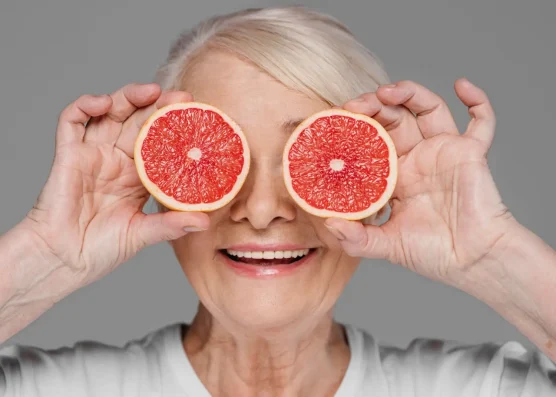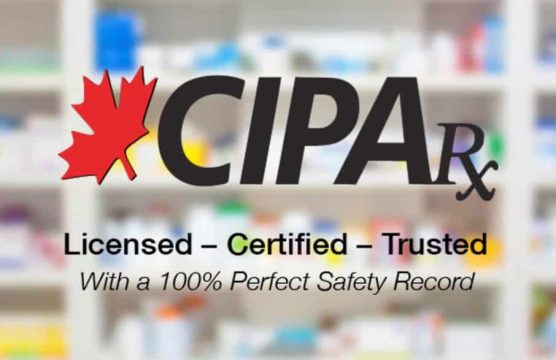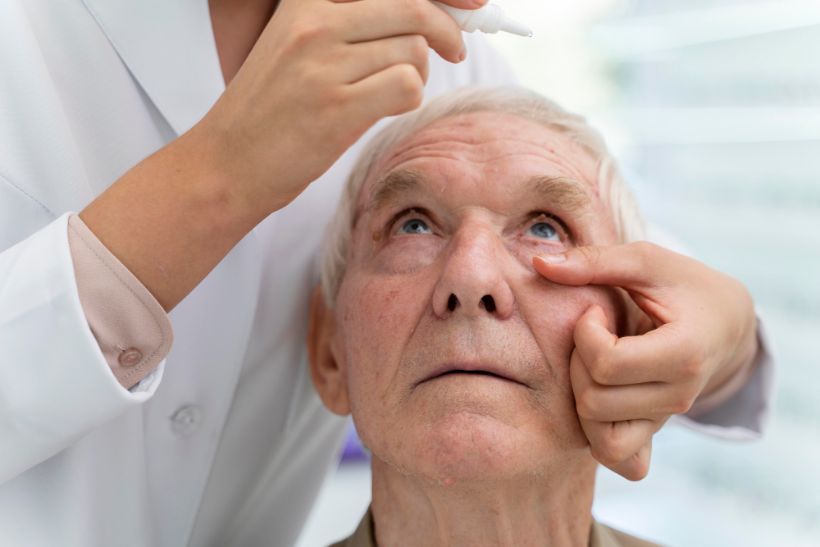If you are taking Eliquis to protect yourself from serious blood clots, you’re not alone. This important medication helps millions of Americans prevent stroke. Understandably, many people wonder about how Eliquis interacts with their food. Understanding how Eliquis interacts with certain foods, supplements, and other medications is crucial for your safety and peace of mind. The good news is that Eliquis offers more dietary freedom than older blood thinners like warfarin, but there are still important precautions to keep in mind. This comprehensive guide will help you navigate these considerations safely while maintaining a nutritious diet that supports your overall health.
According to a comparative study by the National Library of Medicine, by 2030, an estimated 12.1 million U.S. adults will have atrial fibrillation. This underscores the widespread need for anticoagulant dietary guidance. Whether you are new to Eliquis or have been taking it for years, having clear, reliable information about food interactions can help you feel more confident in managing your health.
Eliquis (Apixaban)
See highlights of prescribing information before buying Eliquis from Canada.
How Eliquis Works
Eliquis belongs to a newer class of blood thinners called direct oral anticoagulants (DOACs). Unlike Warfarin (Coumadin), which has been used for decades, Eliquis works by directly blocking Factor Xa, a key protein in your body’s blood clotting process. This targeted approach makes blood clot formation much less likely, reducing your risk of stroke, pulmonary embolism, and other dangerous clotting events.
Also Read: What Is Eliquis Used For?
The way Eliquis works in your body is quite different from warfarin, and this difference is important for understanding dietary restrictions. Warfarin interferes with vitamin K-dependent clotting factors in your liver, which is why patients taking warfarin must carefully monitor their vitamin K intake. Eliquis, on the other hand, doesn’t depend on vitamin K pathways at all.
When you take Eliquis, it is absorbed into your bloodstream and begins working within hours, with peak effectiveness occurring about 3-4 hours after taking your dose. Your body processes Eliquis through several pathways, including liver enzymes and kidney elimination. This is where food and drug interactions become important to understand, as certain substances can interfere with how your body processes the medication, potentially making it more or less effective than intended.
Warfarin vs. Eliquis Diet Myth
Patients transitioning from Warfarin to Eliquis often mistakenly believe they need to continue avoiding vitamin K-rich foods such as leafy greens. However, scientific evidence confirms that Eliquis specifically targets Factor Xa in the coagulation cascade and is not influenced by dietary vitamin K intake. This allows individuals on Eliquis to safely enjoy a diverse and healthy diet.
If you previously took warfarin, you likely remember being told to limit or avoid foods like spinach, kale, broccoli, and other green vegetables. This restriction existed because warfarin works by blocking vitamin K, and eating large amounts of vitamin K-rich foods could interfere with the medication’s effectiveness. Patients on warfarin needed to maintain consistent vitamin K intake and have regular blood tests to ensure their medication was working properly.
Eliquis works differently. Since it directly blocks Factor Xa rather than interfering with vitamin K, you can safely enjoy all the leafy greens (broccoli, brussels sprouts) and other vitamin K-rich vegetables. Many people include these foods as part of a balanced diet to support general health while taking Eliquis.
This dietary freedom is one of the significant advantages of newer blood thinners like Eliquis. You don’t need to worry about maintaining consistent vitamin K levels or having your diet restricted in ways that might make it harder to eat healthily. You can enjoy seasonal vegetables, try new recipes with leafy greens, and benefit from the many nutrients these foods provide without compromising your medication’s effectiveness.
Eliquis Food and Drug Interactions: Foods to Avoid and Substances to Watch
When taking Eliquis, it’s important to be aware of food to avoid that may interfere with how the medication works. The most notable is grapefruit, which can increase the concentration of Eliquis in your bloodstream and raise your risk of bleeding. Other foods like Seville oranges and pomelos may have similar effects. Always review the Eliquis food to avoid list with your doctor or pharmacist, especially if you consume citrus or herbal products regularly.
Grapefruit
Grapefruit is the most well-known food that affects CYP3A4. When you eat grapefruit or drink grapefruit juice, compounds in the fruit can block this enzyme system, causing Eliquis levels in your blood to rise higher than intended. This increases your risk of bleeding complications, which can be serious.
Also Read: Why Combining Lipitor With Grapefruit Is A Bad Idea?
Seville Orange
Seville oranges, which are often used in marmalades and some ethnic cuisines, have similar effects to grapefruit. These bitter oranges contain the same compounds that interfere with CYP3A4 and should be avoided while taking Eliquis.
Pomelos
Pomelos, which are large citrus fruits popular in some Asian cuisines, also contain CYP3A4 inhibitors and should be avoided. If you’re unsure whether a citrus fruit might cause interactions, it’s best to ask your pharmacist or healthcare provider before consuming it regularly.
It is worth noting that the interaction with grapefruit and related fruits isn’t just about fresh fruit. Grapefruit juice, dried grapefruit, and products containing grapefruit extract should also be avoided. Always check ingredient lists on juices, supplements, and processed foods if you’re unsure.
Food and Drug Interactions: Herbs, Supplements, and Eliquis Risks
Many people don’t realize that herbal supplements and natural remedies can interact with prescription medications just as significantly as other drugs . When taking Eliquis, several common herbs and supplements require special caution because they can either increase your bleeding risk or interfere with how the medication works.
Ginger
Ginger is widely used for digestive issues and nausea, but it has natural blood-thinning properties that can add to Eliquis’s effects. While small amounts used in cooking are generally safe, high-dose ginger supplements should be avoided or used only under medical supervision.
Ginkgo biloba
Ginkgo biloba, often marketed for memory and cognitive support, can significantly increase bleeding risk when combined with Eliquis. This herb affects platelet function and can make it harder for your blood to clot when needed.
Turmeric
Turmeric and its active compound curcumin have gained popularity for their anti-inflammatory properties, but they also have blood-thinning effects. While using turmeric occasionally in cooking is typically fine, concentrated turmeric or curcumin supplements can interact dangerously with Eliquis.
Garlic supplements
Garlic supplements present a similar concern. While cooking with fresh garlic is generally safe, concentrated garlic supplements can enhance Eliquis’s blood-thinning effects and increase bleeding risk.
St. John’s Wort
St. John’s Wort deserves special mention because it works differently than the other herbs listed. Rather than increasing bleeding risk, St. John’s Wort can actually reduce Eliquis’s effectiveness by speeding up how quickly your body eliminates the medication. This could leave you with inadequate protection against blood clots.
Fish oil
High-dose fish oil and vitamin E supplements also increase bleeding risk and should be used cautiously with Eliquis. While omega-3 fatty acids from food sources like fish are beneficial, concentrated supplements may be problematic.
Drug and Food Interactions That Increase Bleeding Risk with Eliquis
Beyond foods and herbs, several common medications and substances can interact dangerously with Eliquis. Understanding these interactions is crucial for your safety, especially since some of these are over-the-counter medications you might take without thinking twice.
NSAIDs
Nonsteroidal anti-inflammatory drugs (NSAIDs) like ibuprofen (Advil, Motrin) and naproxen (Aleve) are among the most concerning interactions. These common pain relievers affect how your blood clots and can significantly increase bleeding risk when combined with Eliquis [1]. If you need pain relief, acetaminophen (Tylenol) is generally a safer choice, though you should always check with your healthcare provider first.
Aspirin
Aspirin presents a complex interaction that depends on the dose and your specific medical situation. While low-dose aspirin (81mg) is sometimes prescribed alongside Eliquis for certain heart conditions, this combination requires careful medical supervision. Never start or stop aspirin on your own while taking Eliquis.
Antifungal medications
Certain antifungal medications, particularly ketoconazole and itraconazole, can dramatically increase Eliquis levels in your blood by blocking the enzymes that break it down. Some antiviral medications, including ritonavir used in HIV treatment, have similar effects.
Antiseizure medications
Antiseizure medications like phenytoin and carbamazepine can have the opposite effect, reducing Eliquis effectiveness by speeding up its elimination from your body. If you take seizure medications, your doctor may need to adjust your Eliquis dose or monitor you more closely.
Alcohol
Alcohol deserves special attention because it’s so commonly consumed. Moderate alcohol consumption (one drink per day for women, two for men) is generally considered acceptable with Eliquis, but heavy drinking significantly increases bleeding risk. Alcohol can also affect your liver’s ability to process medications and may interact with other health conditions you’re managing.
Anticoagulant-related adverse events lead to roughly 235,000 U.S. emergency visits annually, with bleeding being the top cause. Many of these events could be prevented with better understanding of drug and food interactions.
Safe Eating Tips
Maintaining a healthy, balanced diet while taking Eliquis doesn’t have to be complicated. The key is focusing on foods that support your overall cardiovascular health while avoiding those few items that can interfere with your medication.
A heart-healthy diet rich in fruits, vegetables, whole grains, and lean proteins is ideal for most people taking Eliquis though some Eliquis and food restrictions may still apply, such as avoiding grapefruit and certain supplements. You can freely enjoy leafy greens like spinach, kale, and lettuce, along with other vegetables like broccoli, cauliflower, and Brussels sprouts. These foods provide important nutrients including folate, which supports healthy blood cell production.
Lean proteins such as fish, poultry, beans, and legumes are excellent choices. Fish high in omega-3 fatty acids, like salmon, mackerel, and sardines, can support heart health. Just remember that if you’re considering fish oil supplements, you should discuss this with your healthcare provider first.
Whole grains provide fiber and nutrients that support cardiovascular health. Brown rice, quinoa, oats, and whole wheat products can be enjoyed freely while taking Eliquis. These foods help maintain stable blood sugar levels and provide sustained energy.
Most fruits are safe and beneficial, with the important exception of grapefruit, Seville oranges, and pomelos mentioned earlier. Berries, apples, bananas, and citrus fruits like regular oranges and lemons provide antioxidants and vitamins that support overall health.
Staying well-hydrated is important when taking any blood thinner. Aim for 6-8 glasses of water daily, unless your doctor has given you specific fluid restrictions. Staying hydrated supports overall kidney function, which helps the body eliminate certain medications. Since Eliquis is partially cleared by the kidneys, hydration may assist this process.
Consider keeping a food diary if you’re concerned about interactions or if you experience any unusual symptoms. This can help you and your healthcare provider identify any patterns or potential issues with your diet and medication.
What To Do If You Consume an Interacting Food or Drug
Despite your best efforts to avoid problematic foods and substances, mistakes can happen. Perhaps you accidentally drank grapefruit juice or forgot about the interaction when taking an over-the-counter pain medication. Knowing how to respond appropriately can help prevent serious complications.
If you’ve consumed a small amount of an interacting food like grapefruit, don’t panic. A single exposure is unlikely to cause serious problems, but you should be aware of bleeding symptoms and contact your healthcare provider for guidance. They may recommend closer monitoring or provide specific instructions based on what you consumed and how much.
The situation is more serious if you’ve taken an interacting medication, especially NSAIDs or multiple doses of something that affects Eliquis. Contact your healthcare provider promptly to discuss the situation. They may want to see you for evaluation or provide specific instructions about monitoring for bleeding symptoms.
Watch for signs of unusual bleeding, which can include nosebleeds that won’t stop, unusually heavy menstrual periods, blood in urine or stool, easy bruising, or bleeding gums. More serious bleeding symptoms include severe headaches, dizziness, weakness, or unusual swelling, which could indicate internal bleeding.
Seek immediate emergency care if you experience signs of serious bleeding, such as vomiting blood, coughing up blood, severe abdominal pain, or signs of a serious head injury after a fall or accident. Major bleeding occurred in 2.13% per year of patients on apixaban versus 3.09% on warfarin in key clinical trials, but prompt medical attention can make a significant difference in outcomes.
Keep a list of medications, supplements, and foods you’ve consumed if you need to seek medical care. This information helps healthcare providers make the best decisions about your treatment.
FAQs
Can I take Eliquis with or without food?
Yes, you can take Eliquis with or without food. Unlike some medications that must be taken with meals to avoid stomach upset or aid absorption, Eliquis is flexible. However, it’s a good idea to take it at the same time each day, with or without food, to maintain a consistent routine.
Can I eat broccoli while taking Eliquis?
Yes, you can absolutely eat broccoli while taking Eliquis. Unlike warfarin, Eliquis doesn’t interact with vitamin K-rich foods like broccoli, spinach, or other leafy greens. These vegetables are actually excellent choices for maintaining heart health and can be enjoyed freely as part of a balanced diet. The dietary restrictions that applied to warfarin don’t apply to Eliquis because it works through a completely different mechanism.
Can I drink alcohol on Eliquis?
Some people consume alcohol while taking Eliquis, but it’s important to discuss this with your healthcare provider to ensure it’s appropriate for your specific health needs. The general guidelines suggest no more than one drink per day for women and two drinks per day for men. However, heavy drinking significantly increases bleeding risk and can interfere with your liver’s ability to process medications. Your doctor may recommend avoiding alcohol entirely if you have liver problems or other health conditions that increase your bleeding risk.
What if I miss a dose?
If you miss a dose of Eliquis, take it as soon as you remember on the same day. If you don’t remember until the next day, skip the missed dose and take your next scheduled dose at the regular time. Never take two doses at once to make up for a missed dose, as this could increase your bleeding risk. If you frequently forget doses, consider using a pill organizer or setting phone reminders to help you maintain consistent medication timing.
Cost & Access Considerations
Many people in the U.S. may find the cost of prescription medications challenging, particularly those without comprehensive insurance or on fixed incomes. Published reports show that Eliquis can cost several hundred dollars per month without coverage, which may lead some individuals to explore financial assistance options or discuss alternatives with their healthcare providers.
If you’re finding the cost of Eliquis difficult to manage, you’re not alone. Some sources indicate that individuals in the U.S., especially older adults on Medicare, may face challenges affording prescription medications alongside other essential expenses, like food or housing. Coverage can also vary widely depending on the specific Medicare plan.
There are several options to explore if cost is a barrier to accessing Eliquis. The manufacturer offers patient assistance programs for qualifying individuals, though the application process can be complex and the criteria restrictive.
Some patients have found relief by safely ordering their medications from licensed Canadian pharmacies, where the same medication often costs significantly less due to different pricing structures. If you’re considering this option, it’s crucial to work only with legitimate, licensed pharmacies that require valid prescriptions and are properly regulated.
When considering any pharmacy option, whether domestic or international, verify that they require prescriptions, are properly licensed, and have pharmacists available to answer questions. Never purchase prescription medications from sources that don’t require prescriptions or seem to offer prices that are too good to be true.
Also Read: How to Safely Buy Eliquis from Canadian Pharmacies
Your health and safety should never be compromised by cost concerns. If you’re having trouble affording Eliquis, speak openly with your healthcare provider about your financial situation. They may be able to suggest alternative medications, help you apply for assistance programs, or provide samples to help bridge gaps in coverage.
Remember that taking Eliquis as prescribed is crucial for preventing potentially life-threatening blood clots [1]. Hospital stays for conditions like stroke or pulmonary embolism can be costly, which is why many people look for affordable ways to access their prescribed medications.
Conclusion
Taking Eliquis successfully requires understanding how this important medication interacts with foods, supplements, and other substances, but it doesn’t mean you have to sacrifice good nutrition or enjoyment of food. Unlike older blood thinners, Eliquis offers considerable dietary freedom, allowing you to enjoy leafy greens and most other foods without concern.
The key restrictions to remember are avoiding grapefruit and related citrus fruits, being cautious with herbal supplements that affect bleeding, and checking with your healthcare provider before taking any new medications, even over-the-counter ones. With these precautions in mind, and by understanding Eliquis and food interactions, you can maintain a heart-healthy diet that supports your wellbeing while avoiding problematic foods and supplements.
If cost is a barrier to accessing your medication, don’t let financial concerns compromise your health. Explore all available options, including patient assistance programs and licensed international pharmacies, to find a sustainable solution for accessing this life-saving medication. Some patients have found relief by safely ordering their medications from licensed Canadian pharmacies, where the same medication often costs significantly less due to different pricing structures. If you’re considering this option, it’s crucial to work only with legitimate, licensed pharmacies that require valid prescriptions and are properly regulated.
DoctorSolve works with a licensed Canadian pharmacy and reputable international pharmacies and has served American customers for many years. We offer significant savings on medications, helping you reduce the cost of Eliquis. We require valid prescriptions from your doctor and provide the same medication manufactured by the same companies, just at more affordable prices.
References
- FDA. (2016). Highlights of prescribing information
- National Library Of Medicine. (2013). Estimates of current and future incidence and prevalence of atrial fibrillation in the U.S. adult population
- National Library Of Medicine. (2019). Apixaban: A Clinical Pharmacokinetic and Pharmacodynamic Review
- VA.gov. (2024). Guidance for the Oversight and Monitoring* of Direct Oral Anticoagulants (DOACs) June 2024
- DailyMed. (2022). Warfarin tablet
- National Library Of Medicine. (2013). Apixaban
- Medlineplus.gov. (2017). Warfarin
- National Library Of Medicine. (2018). Cardiovascular Health Benefits of Specific Vegetable Types: A Narrative Review
- Clincalc.com. (2022) Drug Usage Statistics, United States, 2013 – 2022
- National Library Of Medicine. (2021). The Clinical Significance of Drug–Food Interactions of Direct Oral Anticoagulants
- National Library Of Medicine. (2021) Prevalence and Knowledge of Potential Interactions between Over-the-Counter Products and Apixaban
- FDA.gov. (2021). Grapefruit Juice and Some Drugs Don’t Mix
- Drugs.com. (2025). Mixing Medications and Dietary Supplements Can Endanger Your Health
- National Library Of Medicine.(2022). Drug-Drug Interactions of Direct Oral Anticoagulants (DOACs): From Pharmacological to Clinical Practice
- National Library Of Medicine. (2017). Different Involvement of OAT in Renal Disposition of Oral Anticoagulants Rivaroxaban, Dabigatran, and Apixaban
- NIAAA.nih.gov (2014). Harmful Interactions: mixing alcohol with medicines
- National Library Of Medicine. (2023). Bleeding related to Oral Anticoagulants: Trends in US Emergency Department Visits, 2016–2020
- National Library Of Medicine. (2016). A Whole-Grain Diet Reduces Cardiovascular Risk Factors in Overweight and Obese Adults: A Randomized Controlled Trial1,2,3
- National Library Of Medicine. (2010). Effects of whole grains on coronary heart disease risk
- National Library Of Medicine. (2014). Major bleeding in patients with atrial fibrillation receiving apixaban or warfarin: The ARISTOTLE Trial (Apixaban for Reduction in Stroke and Other Thromboembolic Events in Atrial Fibrillation): Predictors, Characteristics, and Clinical Outcomes
- CDC.gov. (2025). About Moderate Alcohol Use
- NIAAA. (2025). Alcohol’s Effects on Health
- Canada.ca. (2021). Choosing a safe online pharmacy
- CIPA.com () Buying Safe Online Prescription Drugs from Canada
- FDA.gov. (2025). Importation Program under Section 804 of the FD&C Act







